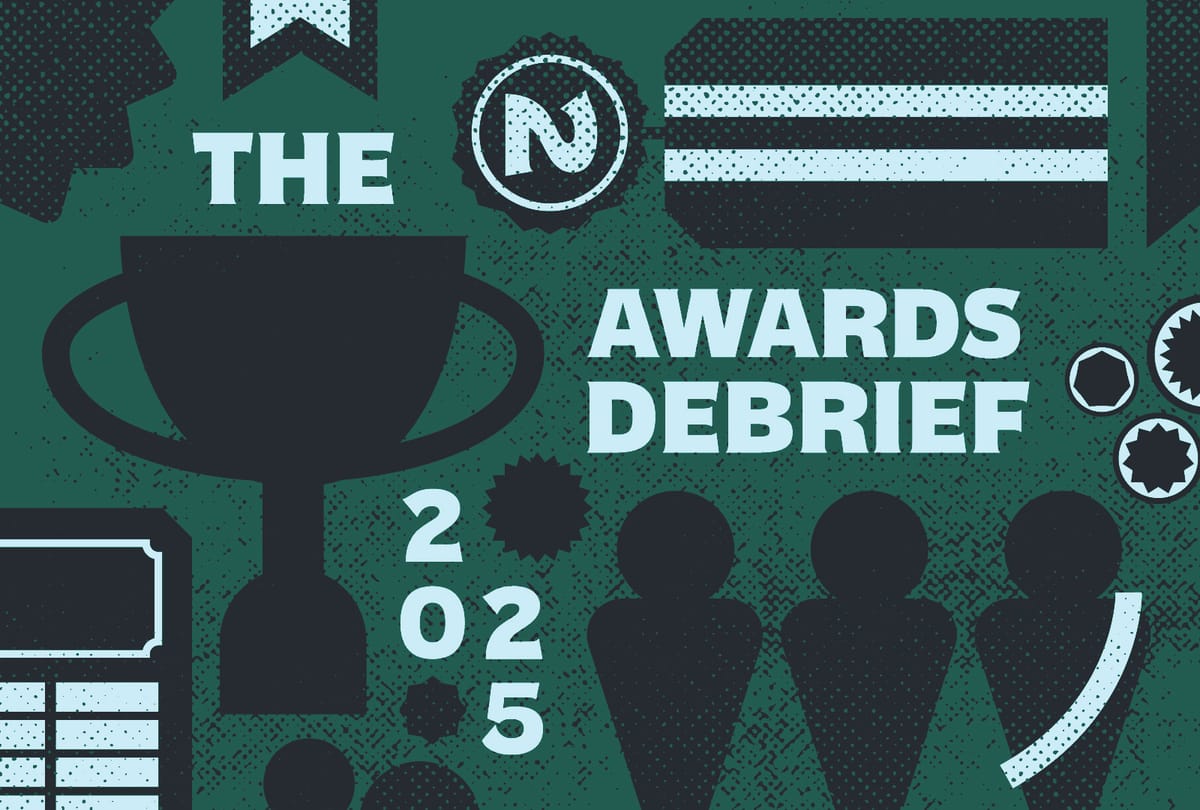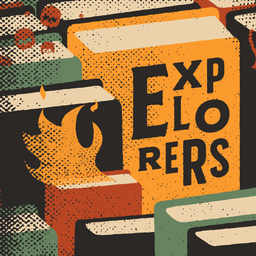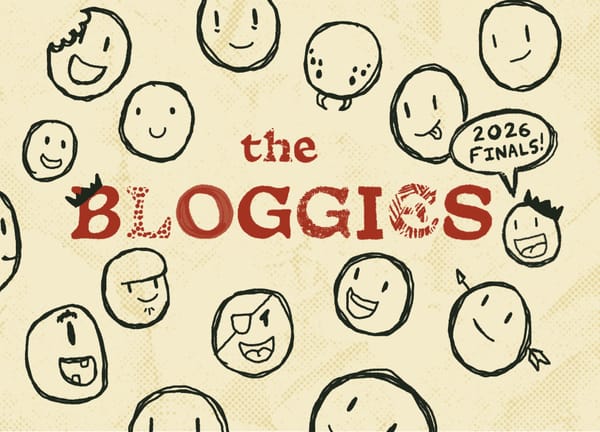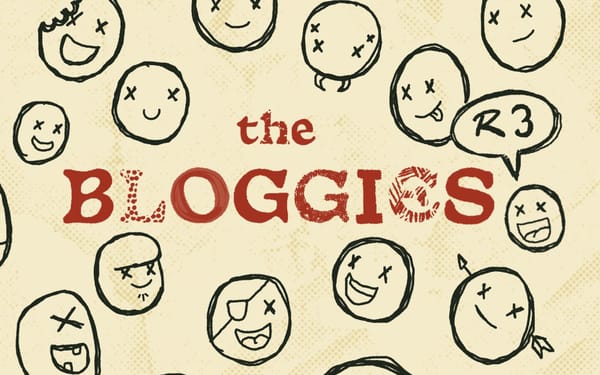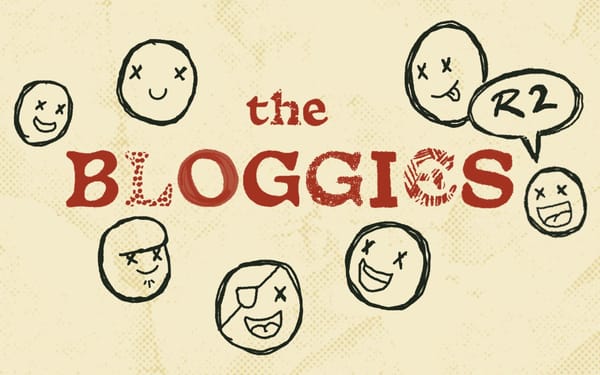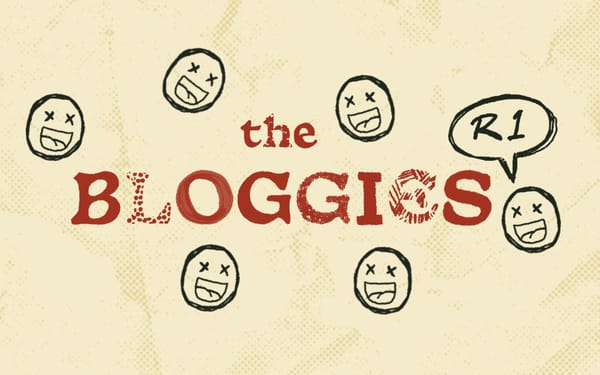Why an Awards Debrief?
An in-depth look at the Ennie Awards, its process, design, and role. Part 1. What is the goal of this series and why?
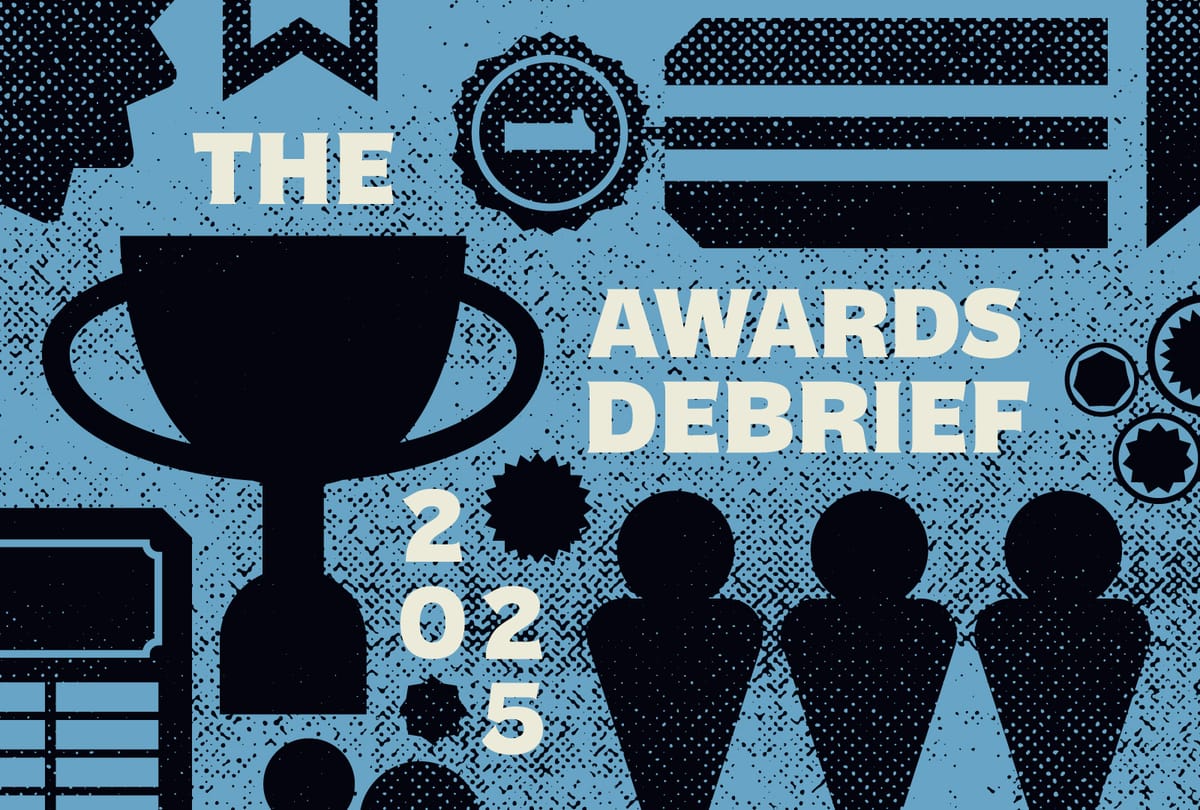
The post-mortem starts here.
It is not easy summarizing The Ennie Awards because there's a lot to say about it. The show is complex, controversial, and pretty confusing to most people it impacts. I couldn't write a summary without feeling the need to tack on a dozen asterisks. So, rather than try to be brief, I'll try to be thorough.
What are the Ennies? How do they work? And what does it all mean? This series was supposed to be my attempt to answer those questions, but it quickly became about something very different: award shows in general. Award shows are an example of the rpg industry's transformation from a relatively small but identifiable scene in the American midwest into the sprawling, virtually unrecognizable, international scene it is now.
Ever since I discovered the Ennies, sometime in the early 2000s, I wanted to understand them. But it wasn't until I was a judge in the Ennies that I started to see a small corner of the bigger picture. This post-mortem is that corner—a debrief of my experience as a 2025 Ennies judge and my somewhat different perspective on them as someone who has participated, attended, and lived with them across my life in several industries beyond rpgs.
What part is this article?
You're reading the intro. In this section, I'm setting the table and outlining my goals for this post-mortem. In parts 2, 3, and 4, we'll dig deeper. I'll share my experience as an Ennies judge, my thoughts on how the Ennies are designed, and what I want for the future of rpg award shows. I'm sorry to be that guy, but I'm writing a multi-part series with one issue every day. Unless I hit a snag, in which case, part 3 and 4 will be posted the week after.
The Awards Debrief
- Part 1: Why am I writing a debrief? ← You are here.
- Part 2: How do the Ennies work?
- Part 3: How are the Ennies designed?
- Part 4: Where do rpg awards go next?
Paid subscribers get 1-day early access to articles.
What are the Ennie Awards?
The Ennies are an annual award show that crowns "excellence"* in tabletop roleplaying games. To summarize the website: It's a peoples’ choice award. A show where the nominees—selected by five judges—are voted on by the gaming public.
*The only reason why I put quotation marks around "excellence" is because I want to make it clear that I know it's a subjective metric. There are no illusions among the judges or the coordinators that an objective excellence can be found. The word is a placeholder for many things depending on the category, game, and its context.
On average, the Ennies have about 20 different categories from "best rules" to "best rpg-related product." The judges are publicly elected then tasked with narrowing the submissions to just five nominees in each of the 20+ categories. Then, the public votes on them, crowning whatever is most popular or has the most clout in that particular year. After votes are tallied, there are two final winners in each category, gold and silver, or first and second place.
The Ennie Awards is the oldest award show focused on tabletop roleplaying games. At least as far as I can tell. It's also hosted at one of the industry's oldest and biggest conventions: Gen Con. It's because of these two things, age and momentum, that the institution garners a lot of attention despite its mixed reputation and output. But don't assume that's a criticism from me, it's actually hard to see any kind of public project last 20 years—especially award shows.
Three things to set the stage.
Before we talk about the Ennies, let's talk about the perspective I have going in.
#1 Award shows are a part of my professional life.
My relationship to award shows doesn't start or end with roleplaying games. As a copywriter and design writer, I've participated in award shows for branding, design, and advertising, including The One Show, D&AD, The Webbys, and Cannes. If you don't know what those are, that's normal. Unlike movie and video game award shows, they're not presented as general consumer entertainment—you have to be in the industry to know them. Despite that, they're popular, prestigious, and influential. My agency life also gave me some insight into film awards by proximity. A few of my creative directors were in the academy and I was on two teams that helped rebrand and advertise the Emmys and Gema. It's this professional experience with award shows that makes me optimistic about their potential for roleplaying games. I've seen larger awards elevate creators, challenge expectations, and drive conversation. I've been a judge and participant in three rpg award shows, The Awards, The Bloggies, and The Ennies. This is not a series on why we need to abandon award shows—it's about what they can be.
#2 I'm grateful for my experience as a judge.
Despite what any criticisms and musing might imply, I was immensely privileged to be a judge. I loved meeting on a semi-regular basis with other judges who were as obsessed with rpgs as I was. And it was an honor to read and (when possible) play the 1,000+ entries we received. Was it overwhelming? Of course, but I found it incredibly rewarding. Being a judge in the Ennies is like opening the Ark of the Covenant and drinking from the Holy Grail at once. It's everything, everywhere, all at once. If I didn't like being a judge, I wouldn't be writing this debrief. So, when I'm writing about the Ennies and award shows, I want to make it clear—I think everyone who got recognition deserved the recognition. Even when I was one of the judges trying to put something else in its place. We are a fractured industry where people pour their hearts and soul into their work for very little money, attention, or glory. Any critiques of the system, are not critiques of the participants.
#3 The Ennies are a hard and thankless job.
The Ennies are hard work. Heck, pulling off any award show is hard. Doing it for more than two decades is a miracle. It's challenges and solutions are complicated. What Stacy, Matthew, Mark, and Jody do to keep the Ennies running every year is like running a Kickstarter campaign that never ends—it's hell. I don't want anything in this post-mortem to discount or ignore how hard it is. This is about the Ennie Awards and award shows, not the people who do everything to keep it afloat. So, any critiques of the system, are not critiques of its caretakers.
Three goals of the debrief.
As hinted earlier, my goal isn't to roast the Ennie Awards.
#1 Illuminate a historically opaque process.
The Ennies had always felt like a black box to me. Every year submissions go in and nominations come out. No interviews, no commentary, no peek behind the scenes. There are a few older examples, but they're few and far between. It's still a cypher. We don't know who the judges are, what the coordinators do, or how the Ennies operate. And for years, that ambiguity made me suspicious of the Ennies. I suspect it made others suspicious too. I want this debrief to shed light on the process to inform others perceptions of it. That way, instead of guessing at the Ennies outputs and intent, we can focus on things like its role in our communities and our relationship to it.
#2 Challenge the design and goals of awards.
Any critique I have of the Ennie Awards is shared by the industry at large. We are very good at reinventing the wheel and making it square-shaped. Every couple of years, a new award show tries to fill a void the other award shows leave unexplored, but too often those newcomers are designed with the same core mechanics. If we are going to design an award show with "gameplay" we want, we have to examine the mechanics that make it possible. Most challenges plaguing our industry today are from systems and processes, and award shows are not exempt from that.
#3 Create a healthier relationship to the Ennies.
While writing this debrief, I came to terms with the fact that I want something else. I want something other than a Gen Con based people's choice awards, but if the Ennies became that, they wouldn't be the Ennie Awards. Knowing what the Ennies are, and what they're not, has made me a lot less frustrated by it. Will I be annoyed by "bad" nominations in the future? Absolutely. Embarrassed by its snafus? Naturally (I'm still a midwesterner). But at least it won't be wrapped up in vague suspicion or the erroneous idea they can be the perfect award show in my head. I hope by sharing my experience, and outlining my hopes for the future, I lead others to the same conclusion. The Ennies are fine. Fun even. We don't need them to change, we just need some change to live alongside it.
Continue reading...
